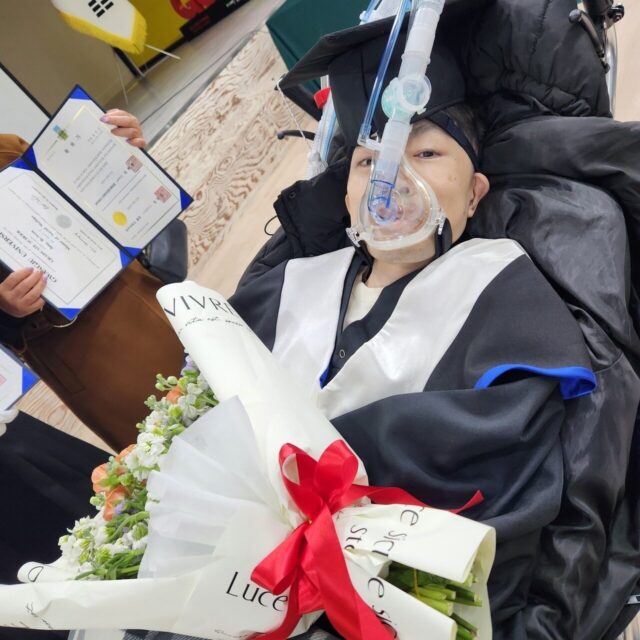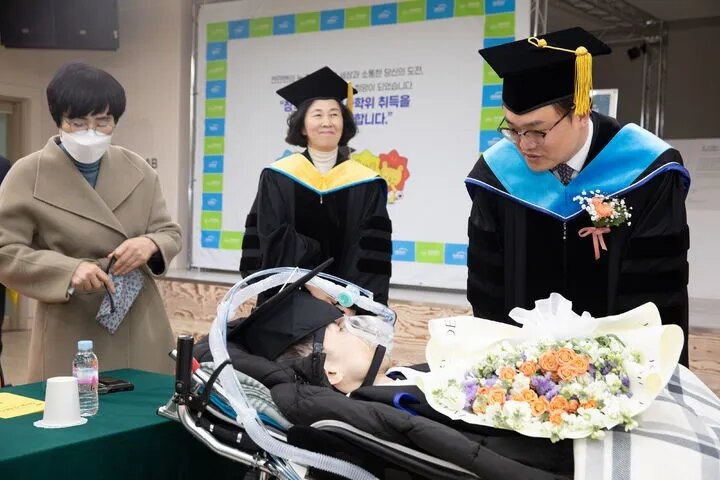A South Korean student with muscular dystrophy has achieved an incredible feat by completing his master’s degree despite most of his body being paralyzed.

Jang Ik Seon, a 37-year-old Korean man, was diagnosed with muscular dystrophy at five years old. The incurable condition weakens and degenerates muscles, causing most motor functions to stop. Jang lost his ability to move, but he was adamant to continue his education.
After clearing South Korea’s middle and high school equivalency exams, in 2019, Jang enrolled in the Graduate School of Social Welfare of Gwangju University. He finished his bachelor’s degree in social welfare in 2021.
Jang also did his master’s from Gwangju University. On February 23, KST, the institution confirmed that he had received his master’s degree at the 2024 academic year’s first graduation ceremony on February 21. Aside from his degree, he also received an academic award recognizing his extraordinary achievement.
Without his ability to move his hand, Jang faced immense challenges to pursue his academic dreams. He relied on a personal scanner to digitize books that weren’t available as e-books. He also struggled with memorization, as he couldn’t take notes.
Scanning each book was exhausting, but it was the only way I could read them…Fifteen years ago, I could still lean my hand on a desk and take notes. Now, even that’s impossible.
— Jang Ik Seon
But his biggest challenge was writing his master’s thesis. Jang used an eye-tracking mouse, a device that converts eye movements into cursor commands, and wrote every word of his thesis, letter by letter, by blinking.

His thesis dealt with the right to life for people with muscle disorders, discussing the perils of lacking support and caregiving systems. Jang argued that activity support is a matter of survival for people like him, critiquing the South Korean government’s policy of only subsidizing six hours of caregiving assistance for those with severe disabilities.
Jang also worked at the Gwangju Muscular Dystrophy Association, advocating for people with a group of around 30 genetic muscle disorders that are collectively known as muscular dystrophy. He also runs a YouTube channel where he raises awareness about the condition.








Leave a Reply